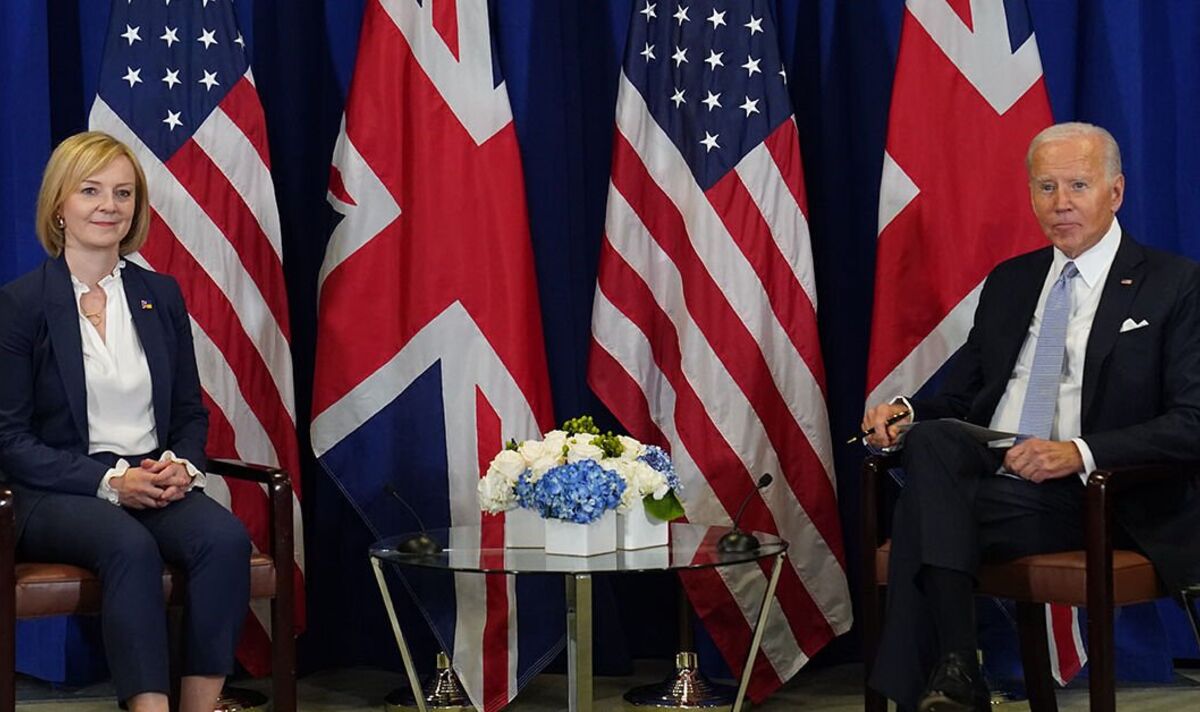Carney's Claim: Canada Holds Leverage In US Trade Deal Negotiations

Table of Contents
Former Bank of Canada Governor Mark Carney's recent comments suggest that Canada holds considerable leverage in trade negotiations with the United States. This assertion, made amidst a complex global economic and political landscape, warrants closer examination. This article will delve into the key factors supporting Carney's claim, analyzing Canada's economic strengths, political influence, and potential challenges to its negotiating power in the context of US trade deals.
Canada's Economic Strengths as Leverage
Canada's robust economy provides a strong foundation for its leverage in trade negotiations with the US. Several key sectors contribute significantly to this economic power.
Energy Sector Dominance
Canada is a major energy supplier to the United States, providing significant quantities of oil, natural gas, and electricity. This energy security dependence gives Canada considerable bargaining power. The potential for disruptions to this energy flow offers a significant leverage point in negotiations.
- Specific examples: Canadian oil sands production supplies a substantial portion of US oil imports. Canadian hydroelectric power contributes significantly to the US Northeast's electricity grid. Natural gas pipelines from Canada feed into numerous US states.
- Potential for renewable energy collaborations: Canada's growing renewable energy sector, particularly hydropower and wind power, presents opportunities for collaborative projects with the US, further strengthening its negotiating position.
Resource-Rich Economy
Beyond energy, Canada boasts a wealth of natural resources including vast mineral deposits, substantial timber reserves, and significant agricultural production. These resources are crucial to various US industries.
- Key resource exports: Potash, nickel, aluminum, lumber, and wheat are just some examples of Canadian resources vital to US manufacturing and construction.
- Importance in US industries: These resources underpin numerous US industries, creating dependence and influencing the bargaining power in trade negotiations.
Strategic Geographic Location
Canada's proximity to the United States is a significant geopolitical advantage, impacting trade logistics and facilitating seamless border crossings. This close geographical relationship significantly influences the ease and efficiency of trade between the two nations.
- Benefits of proximity: Reduced transportation costs and shorter transit times contribute to economic efficiency, making Canada a preferred trading partner.
- Potential disruptions from trade friction: Conversely, any trade friction or border disputes could cause significant disruptions, highlighting Canada's leverage in maintaining smooth trade relations.
Political and Diplomatic Influence
Canada's strong political and diplomatic relationships with the US, coupled with its international alliances, further bolster its negotiating position.
Close Bilateral Ties
The long-standing, deep relationship between Canada and the US is characterized by extensive cooperation on numerous fronts. This close bond forms the bedrock of a mutually beneficial partnership.
- Examples of historical cooperation: Shared defense initiatives, collaborative environmental protection efforts, and joint infrastructure projects showcase the enduring strength of this partnership.
- Shared security interests: Close security cooperation and shared democratic values reinforce the political alignment and mutual understanding between the two nations.
International Alliances and Agreements
Canada's active participation in international organizations such as the G7 and NATO allows it to leverage its influence on the global stage, impacting US trade policy considerations.
- Specific examples of international agreements: Participation in NAFTA (now USMCA) and other multilateral trade agreements demonstrates Canada's commitment to collaborative trade relationships.
- Influence on US trade policy decisions: Canada's standing within these organizations provides a platform to advocate for its interests and influence US policy decisions.
Public Opinion and Political Pressure
Public opinion and media coverage in both countries can significantly influence trade negotiations. Public pressure can shape government policies and create incentives for compromise.
- Examples of past public reactions to trade disputes: Past instances of public backlash against trade policies illustrate the potential for public sentiment to influence negotiation outcomes.
- Impact of media coverage: Media narratives can frame public perception and put pressure on policymakers to consider public opinion.
Potential Challenges and Counterarguments
While Canada holds considerable leverage, it's crucial to acknowledge potential challenges and counterarguments to Carney's claim.
US Dependence on Other Sources
The US may seek to diversify its sources for certain resources, potentially reducing its reliance on Canada. This diversification could diminish Canada's leverage in certain areas.
- Examples of alternative suppliers: For some resources, the US can turn to other countries, lessening its dependence on Canadian exports.
- Impact on Canada's leverage: Diversification of supply chains may affect Canada's ability to influence trade negotiations related to specific resources.
Internal Political Dynamics in the US
Internal political divisions and shifting priorities within the US government can impact trade negotiations, potentially hindering Canada's ability to secure favorable outcomes.
- Examples of political factions: Differing political ideologies and priorities within the US government can lead to conflicting approaches towards trade negotiations.
- Potential impact on trade deals: Internal political disagreements can lead to delays, compromises, or even the failure to reach mutually agreeable trade deals.
Economic Factors
External economic pressures, such as global inflation or recession, can also shift the balance of power in trade negotiations, affecting Canada's leverage.
- Examples of global economic factors: A global recession could influence both countries' priorities, potentially impacting the negotiation dynamics.
- Effect on Canada's leverage: Global economic fluctuations can change the relative importance of various resources and affect the overall negotiation landscape.
Conclusion
Mark Carney's assertion that Canada holds leverage in US trade deal negotiations is supported by several key factors. Canada's economic strengths, particularly its dominant energy sector and resource-rich economy, coupled with its strategic geographic location, provide a significant foundation for its negotiating power. Furthermore, Canada's close bilateral ties with the US, its participation in international alliances, and the potential impact of public opinion all contribute to its influence. However, challenges such as US diversification of supply chains, internal US political dynamics, and global economic factors must be considered. Understanding Canada's leverage in US trade deal negotiations is crucial for navigating the complexities of North American trade relations and predicting future outcomes. Stay informed about the evolving dynamics of Canada's influence in US trade negotiations by following reputable news sources and economic analyses.

Featured Posts
-
 Thueringens Amphibien Und Reptilien Der Neue Atlas Ist Da
Apr 27, 2025
Thueringens Amphibien Und Reptilien Der Neue Atlas Ist Da
Apr 27, 2025 -
 Ariana Grandes Transformation The Importance Of Professional Support In Self Expression
Apr 27, 2025
Ariana Grandes Transformation The Importance Of Professional Support In Self Expression
Apr 27, 2025 -
 Pne Group Awarded Permits For Two Wind Farms And A Pv Plant In Germany
Apr 27, 2025
Pne Group Awarded Permits For Two Wind Farms And A Pv Plant In Germany
Apr 27, 2025 -
 Kanopys Hidden Gems Free Movies And Shows You Shouldnt Miss
Apr 27, 2025
Kanopys Hidden Gems Free Movies And Shows You Shouldnt Miss
Apr 27, 2025 -
 Teslas Canadian Price Hike Impact Of Tariff Changes
Apr 27, 2025
Teslas Canadian Price Hike Impact Of Tariff Changes
Apr 27, 2025
